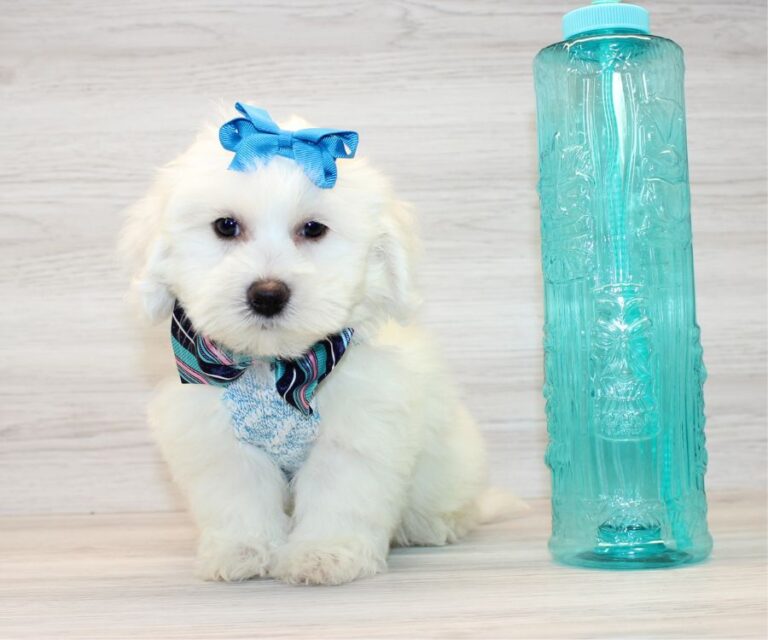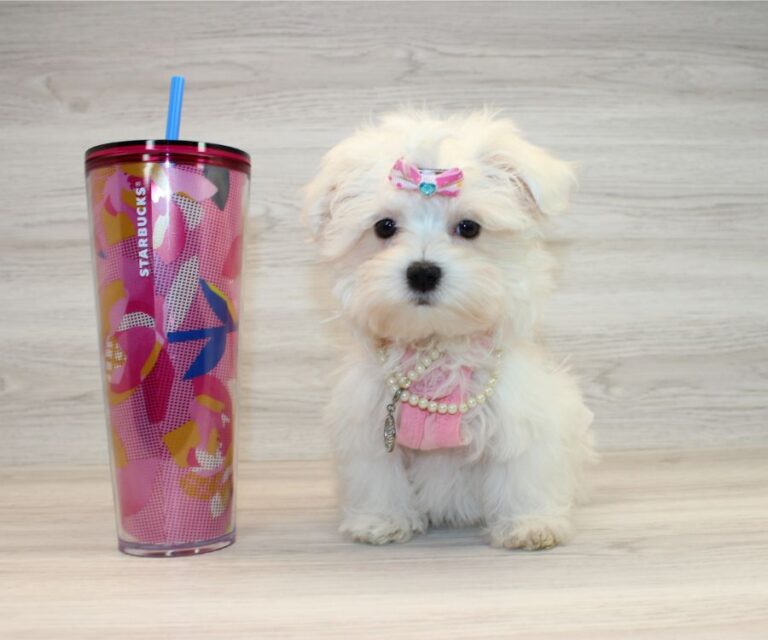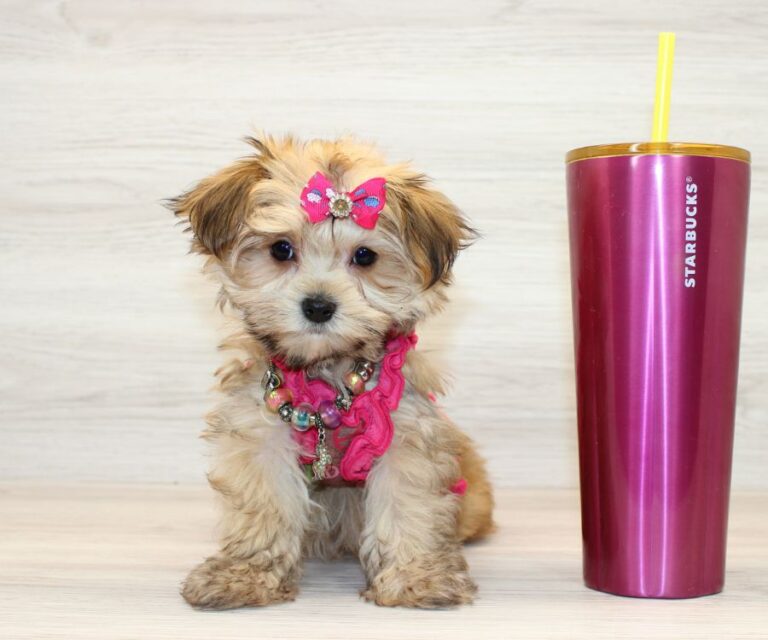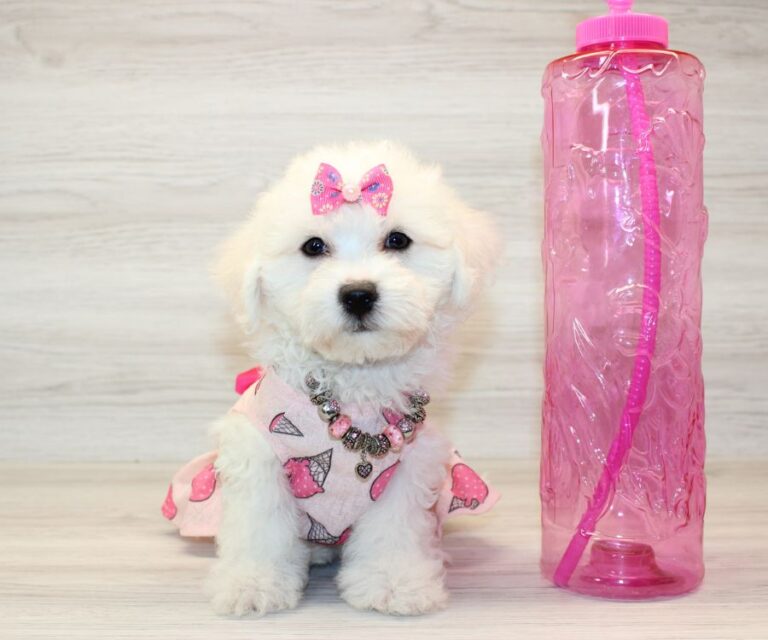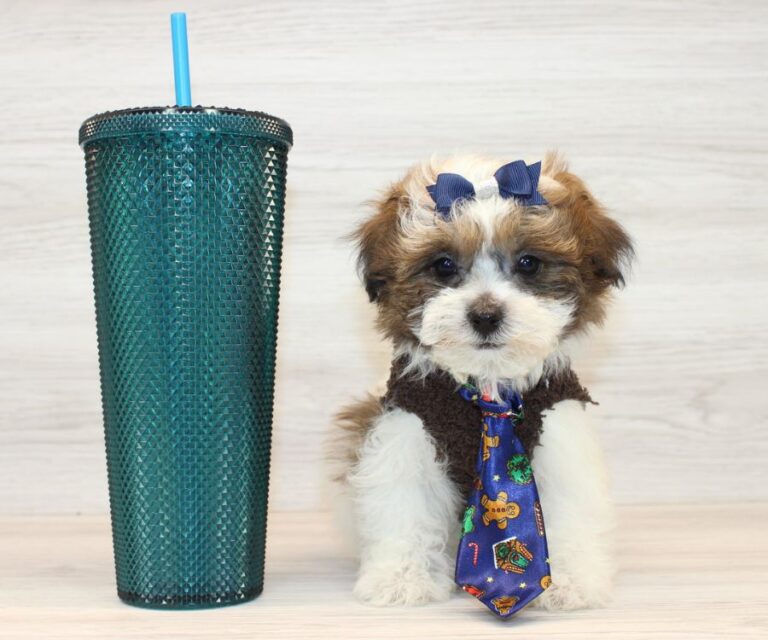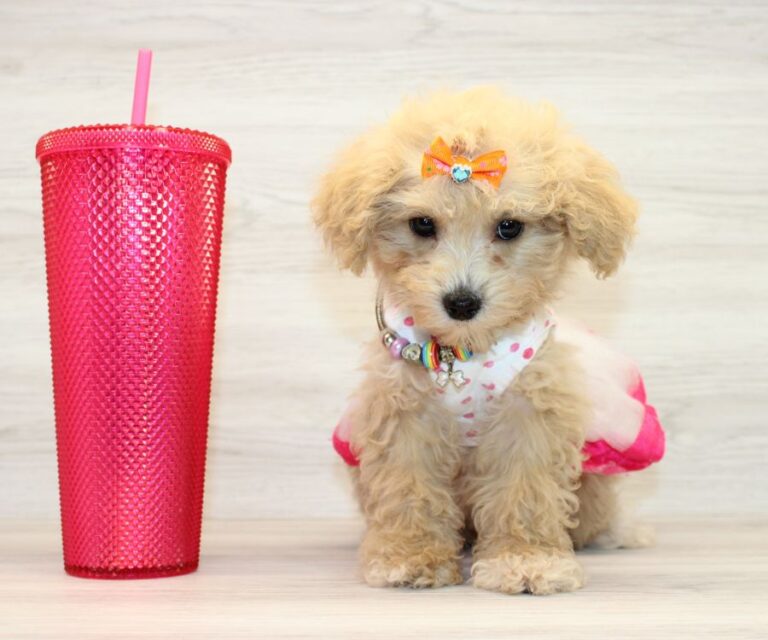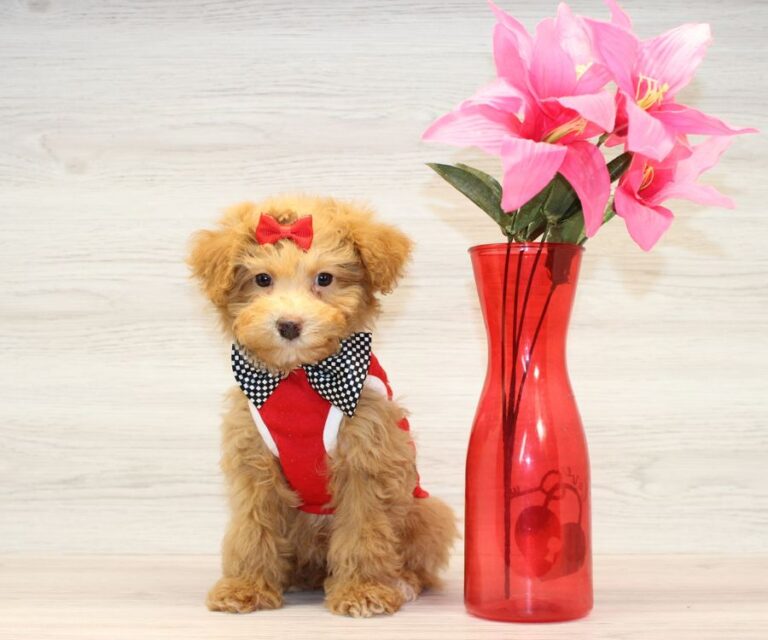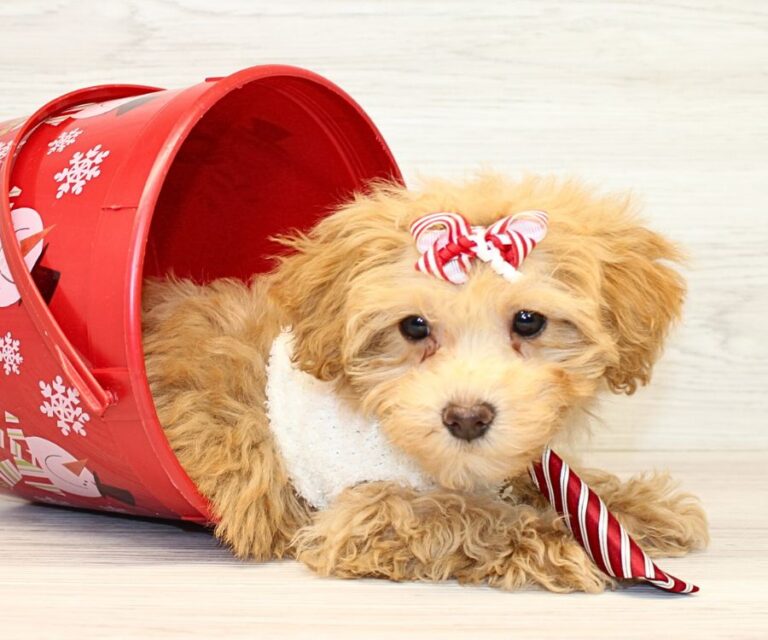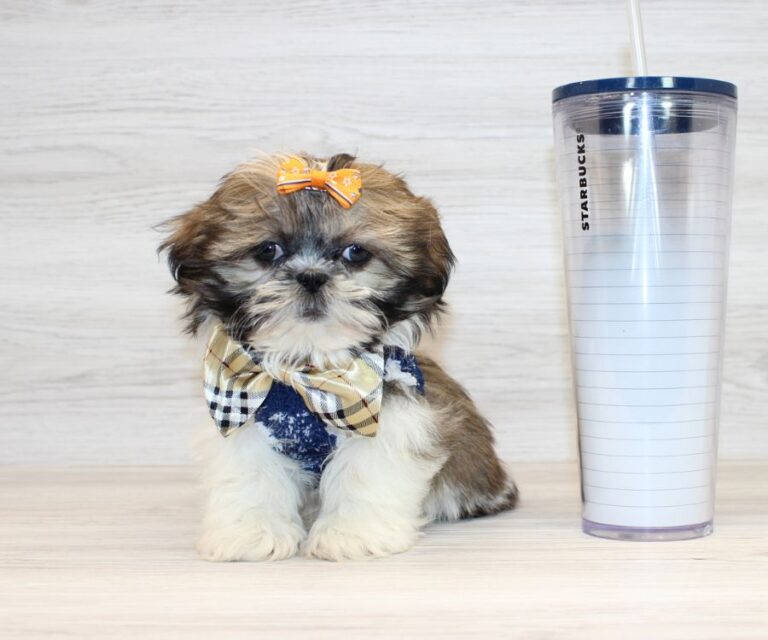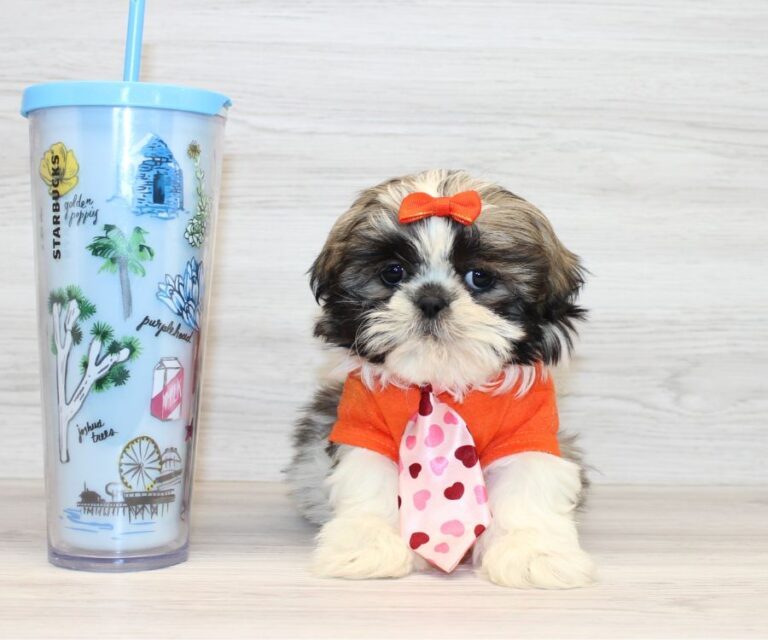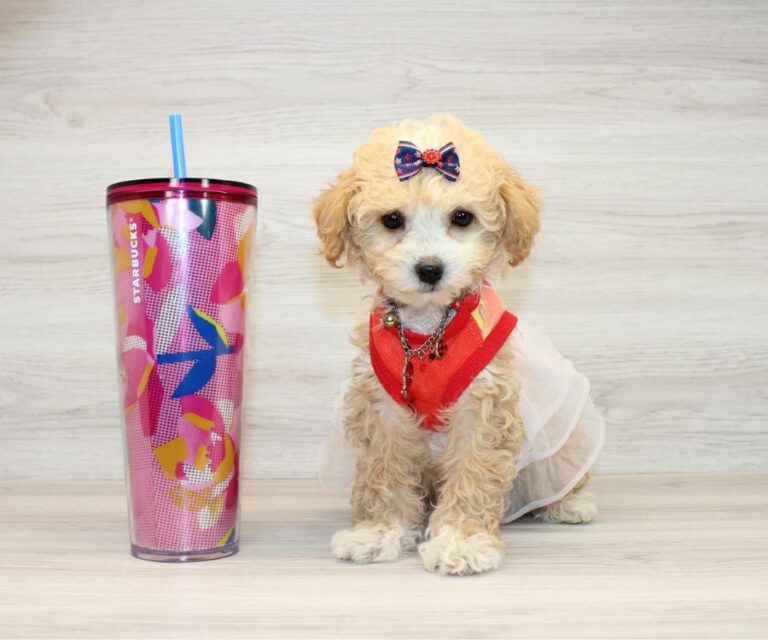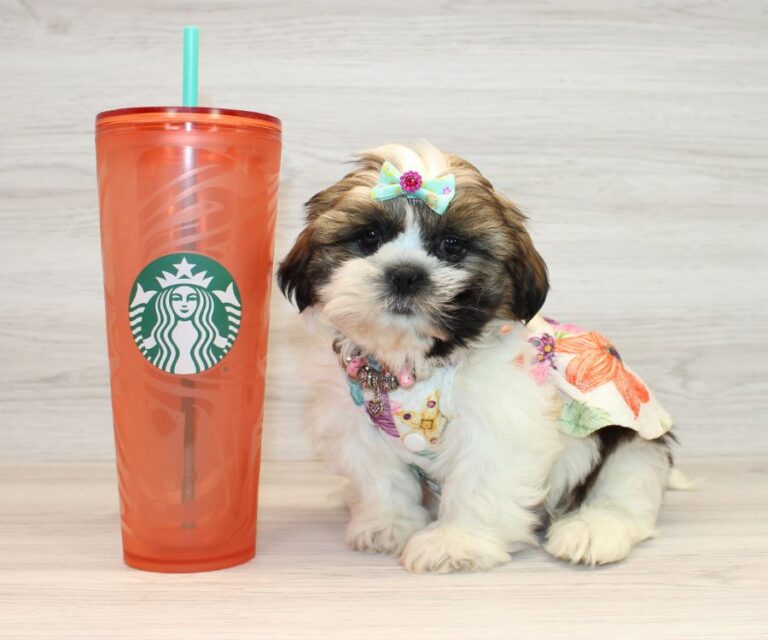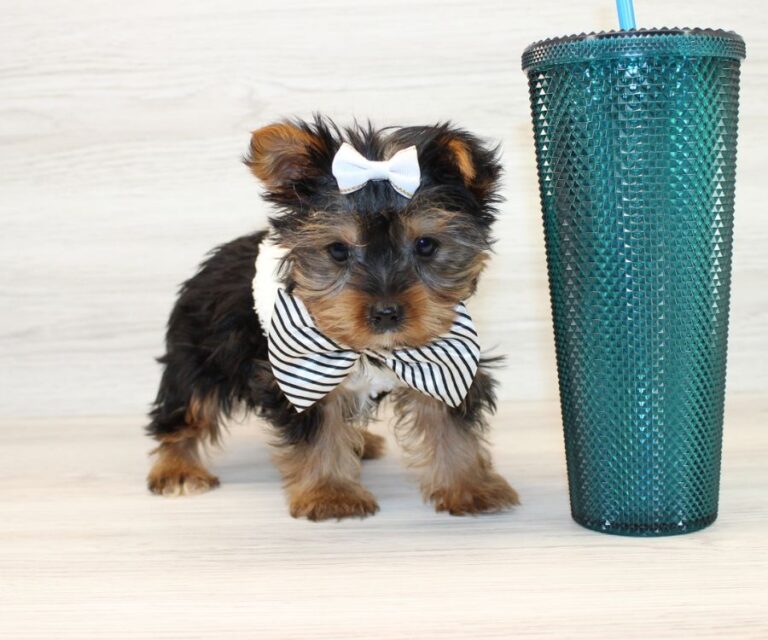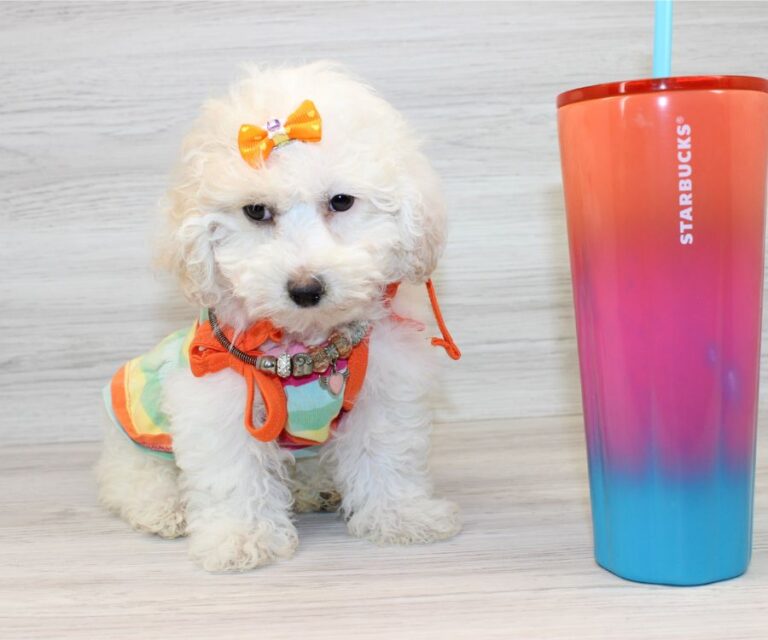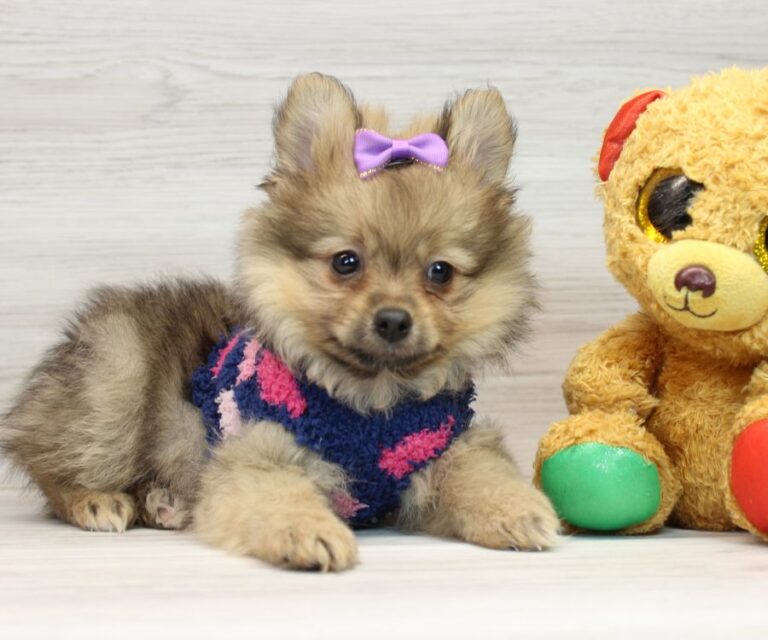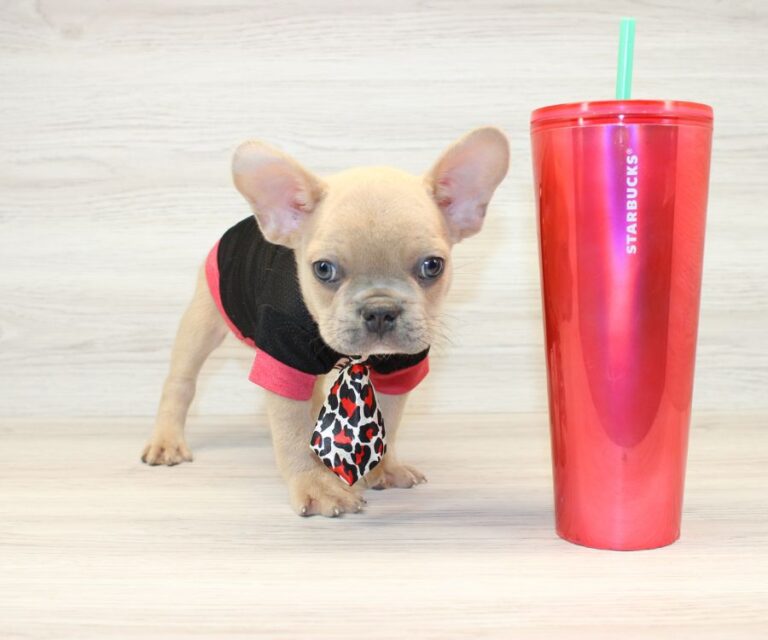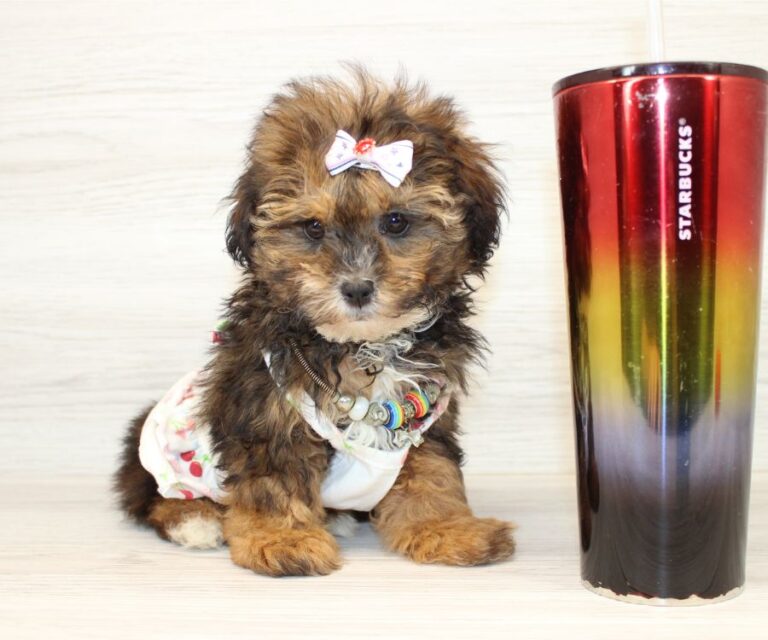At PuppyHeaven.com, you’ll find a specialized selection of toy and teacup puppies for sale in Endicott, NY. These breeds require precise care, especially in diet and handling, due to their small size and fragile bones. Ideal for apartment living, they are less burdensome in maintenance and exercise needs compared to larger breeds. When selecting a puppy, it’s important to take into account the breeder’s ethics and the puppy’s health and temperament. Proper socialization and specific training are essential for these miniature breeds. Exploring this further will provide insights into how these small companions can fit into your life seamlessly.
Understanding Toy & Teacup Breeds
Before delving into the world of toy and teacup puppies, it’s vital you understand that despite their small size, these breeds require specific care and attention. Toy and teacup dogs aren’t separate breeds but terms used to describe smaller versions of already small breeds. The distinction between ‘toy’ and ‘teacup’ is primarily about size; teacup dogs are generally even smaller than toy breeds, often weighing as little as 2 pounds.
The breed origins of these miniature dogs trace back to specific breeding practices aimed at reducing size while maintaining the desirable characteristics of their larger counterparts. For instance, the Toy Poodle is a scaled-down version of the Standard Poodle, bred for those seeking a smaller, more manageable pet without sacrificing the intelligence and elegance of the breed.
In terms of size comparison, while a standard Toy Poodle may weigh between 4 to 6 pounds, a teacup version typically weighs under 4 pounds. This significant reduction in size demands precise and attentive care, particularly in their diet and physical handling, to prevent injuries and secure their health and longevity. Understanding these nuances is essential for anyone considering adopting these petite companions.
Benefits of Smaller Dogs
Smaller dogs offer considerable advantages, including easier management and lower maintenance costs, making them ideal for apartment living or for those with limited space. You’ll find that these tiny companions aren’t only more adaptable to smaller residences but also require less physical exercise compared to larger breeds, which aligns perfectly with the often hectic schedules of urban living.
Furthermore, the financial burden associated with caring for a smaller dog tends to be less severe. Their dietary needs are minimal, they require fewer medications in smaller doses, and even accessories like beds, crates, and toys are less costly due to their reduced size. This economic efficiency makes smaller dogs particularly appealing if you’re budget-conscious but still wish to enrich your life with a pet’s companionship.
Healthcare is another area where smaller dogs generally offer benefits. They’re less prone to certain genetic diseases that are common in larger breeds, potentially reducing both veterinary visits and associated healthcare costs. This aspect not only benefits you financially but also ensures a longer, healthier life for your pet, enhancing the quality of life for both of you. By choosing a smaller dog, you’re not just making a practical choice but also a compassionate one, fostering a mutually beneficial relationship with your new furry friend.
Puppy Selection Process
Having explored the benefits of smaller dogs, let’s now focus on how to select the right puppy for your needs and lifestyle. Choosing the ideal puppy goes beyond mere aesthetics or size; it involves understanding breeding ethics and genetic diversity to guarantee a healthy and well-adjusted companion.
Here are three key aspects to take into account during the puppy selection process:
Breeding Ethics: You must verify the breeder’s commitment to ethical breeding practices. Ethical breeders prioritize the health and well-being of their puppies over profit. They should provide transparent access to the puppy’s lineage and breeding conditions, ensuring that the puppies are raised in a nurturing environment.
Genetic Diversity: To avoid common genetic issues associated with toy and teacup breeds, inquire about the genetic diversity of the puppy’s ancestors. A wider genetic pool helps in reducing hereditary health problems, leading to a more robust developmental start for your puppy.
Compatibility Assessment: Assess how well a puppy’s temperament aligns with your lifestyle. Puppies from the same litter can exhibit vastly different temperaments; some may be more energetic while others more subdued. Consider your daily routine and choose a puppy whose energy level and temperament fits well within your lifestyle.
Health Considerations
When choosing a toy or teacup puppy, it’s important to take into account specific health issues that these breeds often face, such as respiratory problems and fragile bones. These diminutive canines are prone to a myriad of genetic predispositions that can impact their quality of life and longevity. Understanding these health risks is necessary for providing the best care possible.
Toy and teacup breeds, due to their small size and selective breeding practices, frequently encounter conditions like hypoglycemia, dental problems, and heart defects. Hypoglycemia, or low blood sugar, is particularly common in smaller breeds and can be life-threatening if not managed properly. Regular monitoring and appropriate dietary adjustments are crucial.
Additionally, due to their fragile skeletal structure, these puppies are more susceptible to injuries from falls or rough handling. It’s important to handle them with extra care to prevent any harm. Lifespan concerns are also significant, as some of these breeds may have shorter life expectancies due to their inherent health complications.
As you consider welcoming a toy or teacup puppy into your home, it’s important to be prepared for the potential medical care they’ll require. Consulting with a veterinarian who specializes in small breeds can provide you with tailored strategies to maintain your puppy’s health and wellbeing.
Preparing Your Home
Before you bring your new toy or teacup puppy home to Endicott, NY, it’s important to prepare your environment to guarantee their safety and comfort.
Start by puppy-proofing your home, removing any small objects they might swallow, securing loose wires, and placing hazardous chemicals out of reach.
Next, set up a safe space for your puppy, equipped with a comfortable bed, access to fresh water, and toys that are appropriate for their size and chewing habits.
Puppy-Proofing Essentials
To guarantee your home is safe for a new puppy, start by removing any small objects they could swallow. Ensuring their safety involves a few critical steps:
Chewing Deterrents: Apply non-toxic sprays on furniture and other items. These deterrents discourage chewing by emitting a taste puppies find unpleasant, thereby protecting your belongings and preventing ingestion of harmful materials.
Gate Installations: Erect safety gates to restrict access to potentially dangerous areas. This not only keeps your puppy safe but also helps manage and train their exploring tendencies in a controlled environment.
Secure Trash Cans: Use cans with locking lids or store them in a latched cabinet. Puppies often explore trash bins, risking ingestion of toxic substances or choking hazards.
Safe Space Setup
Establishing a designated safe space for your puppy is crucial in guaranteeing they feel secure and protected in their new environment. Optimize this area with comfort materials such as a plush bed and soft blankets that support their delicate frames. Integrate effective noise control measures; consider the placement of their space away from high-traffic areas to minimize stress from loud sounds.
Choose an area that maintains a stable temperature and provides enough room for your puppy to move around, but also allows them to feel contained and cozy. Regularly ensure the space is free from small objects or harmful substances that could pose a risk. By conscientiously setting up this environment, you’re providing the foundational support necessary for their well-being and development.
Training Tips for Tiny Puppies
Training tiny puppies requires patience, as their small size and developmental stage demand gentle, consistent guidance. When you’re fostering these miniature breeds, it’s important to integrate specific training techniques that accommodate their unique needs. Early socializing strategies and establishing feeding routines are essential components that influence their development and behavior positively.
Here are three key training tips to follow:
Socialization: Introduce your puppy to various environments, sounds, and people from an early age. This exposure helps them develop into well-adjusted adults. Aim to keep interactions positive and controlled to avoid overwhelming them.
Feeding Routines: Set specific times for meals and stick to them. Consistency in feeding not only aids in house training but also instills a sense of security and order. Use meal times as an opportunity to reinforce good behavior such as sitting quietly before eating.
Positive Reinforcement: Tiny puppies respond well to positive reinforcement techniques. Reward desired behaviors with small treats, praise, or playtime. This method encourages them to repeat those behaviors and helps in building a bond of trust and respect between you and your puppy.
Implementing these strategies requires dedication, but it’s incredibly rewarding as you watch your tiny companion grow into a confident and happy adult.
Adoption Costs and Procedures
Adopting a toy or teacup puppy in Endicott, NY, involves understanding the various costs and procedures that are essential to ensuring a responsible and informed adoption process. The adoption legality must be thoroughly comprehended to meet both state and local regulations. You’ll need to review and sign a legally binding adoption agreement that outlines your responsibilities and the rights of all parties involved.
The financial aspect of adoption includes several fees that contribute to the health and welfare of the puppy prior to adoption. These fees often cover vaccinations, microchipping, spaying or neutering, and sometimes, a health guarantee. Payment options are versatile, designed to accommodate a range of financial situations. You can usually choose from upfront payments, installment plans, or financing options, ensuring that the adoption process is accessible to those who are genuinely committed to providing a nurturing home.
It’s important to ask about all associated costs upfront to avoid unexpected expenses. Additionally, make sure that all financial transactions are documented to maintain transparency and accountability. Remember, the investment you’re making isn’t just financial; it’s a commitment to the life and well-being of your new puppy.
Aftercare and Support Services
Once you’ve managed the financial and legal aspects of adoption, you’ll find thorough aftercare and support services important to your puppy’s well-being. At Puppyheaven.Com, we prioritize your new companion’s health and happiness through a structured regimen designed to foster best growth and adjustment.
Below, we detail several key components of our support services:
Nutritional Advice: We provide tailored nutritional plans based on the specific needs of Toy and Teacup breeds. Our detailed guidance covers everything from portion sizes to the types of food that enhance your puppy’s health, ensuring proper development and vitality.
Grooming Schedules: Regular grooming is essential for maintaining your puppy’s coat and skin health. We offer detailed grooming schedules that outline frequency and methods suited to the delicate nature of smaller breeds. This proactive approach helps prevent common issues such as matting and skin infections.
Routine Health Check-Ups: Continuous veterinary support is important. We facilitate initial health screenings and subsequent check-ups to monitor your puppy’s development and preemptively address any potential health concerns.
These services are designed to ease your entry into pet ownership and guarantee that you’re well-equipped to provide exemplary care. Remember, the goal here is to ensure a healthy, joyful environment for your new family member.
Conclusion
As you consider adopting a toy or teacup puppy from PuppyHeaven.com in Endicott, NY, keep in mind the importance of understanding the breed’s specific needs. Confirm that your home is prepared and you’re equipped with the right training strategies.
Take into account the initial adoption costs and ongoing health considerations. By doing so, you’ll provide a nurturing environment for your tiny companion.
PuppyHeaven also offers aftercare and support services to assist you every step of the way in your new journey together.

